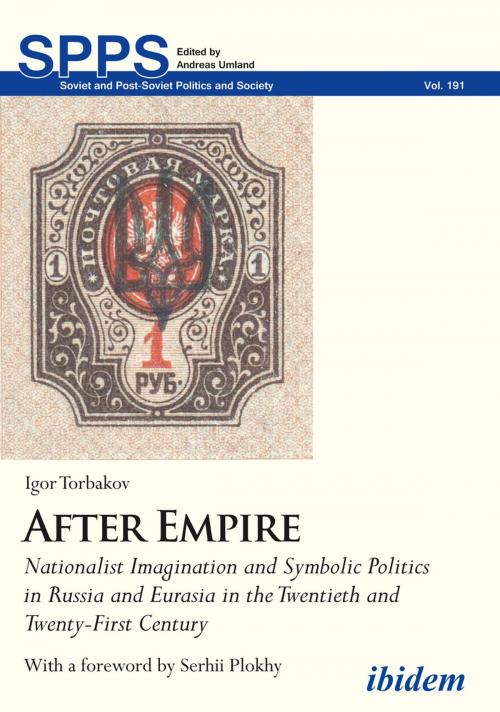After Empire
Nationalist Imagination and Symbolic Politics in Russia and Eurasia in the Twentieth and Twenty-First Century
Nonfiction, History, Asian, Russia| Author: | Igor Torbakov | ISBN: | 9783838272177 |
| Publisher: | Ibidem Press | Publication: | October 30, 2018 |
| Imprint: | Ibidem Press | Language: | English |
| Author: | Igor Torbakov |
| ISBN: | 9783838272177 |
| Publisher: | Ibidem Press |
| Publication: | October 30, 2018 |
| Imprint: | Ibidem Press |
| Language: | English |
Igor Torbakov explores the nexus between various forms of Russian political imagination and the apparently cyclic process of the decline and fall of Russia’s imperial polity over the last hundred years. While Russia’s historical process is by no means unique, two features of its historical development stand out. First, the country’s history is characterized by dramatic political discontinuity. In the past century, Russia changed its “historical skin” three times: following the disintegration of the Tsarist Empire accompanied by violent civil war, it was reconstituted as the communist USSR, whose breakup a quarter century ago led to the emergence of the present-day Russian Federation. Each of the dramatic transformations in the twentieth century powerfully affected the notion of what “Russia” is and what it means to be Russian. Second, alongside Russia’s political instability, there is, paradoxically, a striking picture of geopolitical stability and of remarkable longevity as an imperial entity. At least since the beginning of the eighteenth century, “Russia” has been a permanent geopolitical fixture on Europe’s northeastern margins with its persistent pretense to the status of a great power.
Against this backdrop, the book’s three sections investigate (a) the emergence and development of Eurasianism as a form of (post-)imperial ideology, (b) the crucial role Ukraine has historically played for the Russians’ self-understanding, and (c) contemporary Russian elites’ exercises in historical legitimation.
Igor Torbakov explores the nexus between various forms of Russian political imagination and the apparently cyclic process of the decline and fall of Russia’s imperial polity over the last hundred years. While Russia’s historical process is by no means unique, two features of its historical development stand out. First, the country’s history is characterized by dramatic political discontinuity. In the past century, Russia changed its “historical skin” three times: following the disintegration of the Tsarist Empire accompanied by violent civil war, it was reconstituted as the communist USSR, whose breakup a quarter century ago led to the emergence of the present-day Russian Federation. Each of the dramatic transformations in the twentieth century powerfully affected the notion of what “Russia” is and what it means to be Russian. Second, alongside Russia’s political instability, there is, paradoxically, a striking picture of geopolitical stability and of remarkable longevity as an imperial entity. At least since the beginning of the eighteenth century, “Russia” has been a permanent geopolitical fixture on Europe’s northeastern margins with its persistent pretense to the status of a great power.
Against this backdrop, the book’s three sections investigate (a) the emergence and development of Eurasianism as a form of (post-)imperial ideology, (b) the crucial role Ukraine has historically played for the Russians’ self-understanding, and (c) contemporary Russian elites’ exercises in historical legitimation.















![Cover of the book Gefährliche Nähe [German-language Edition] by Igor Torbakov](https://www.kuoky.com/images/2015/march/300x300/9783838265698-D56U_300x.jpg)